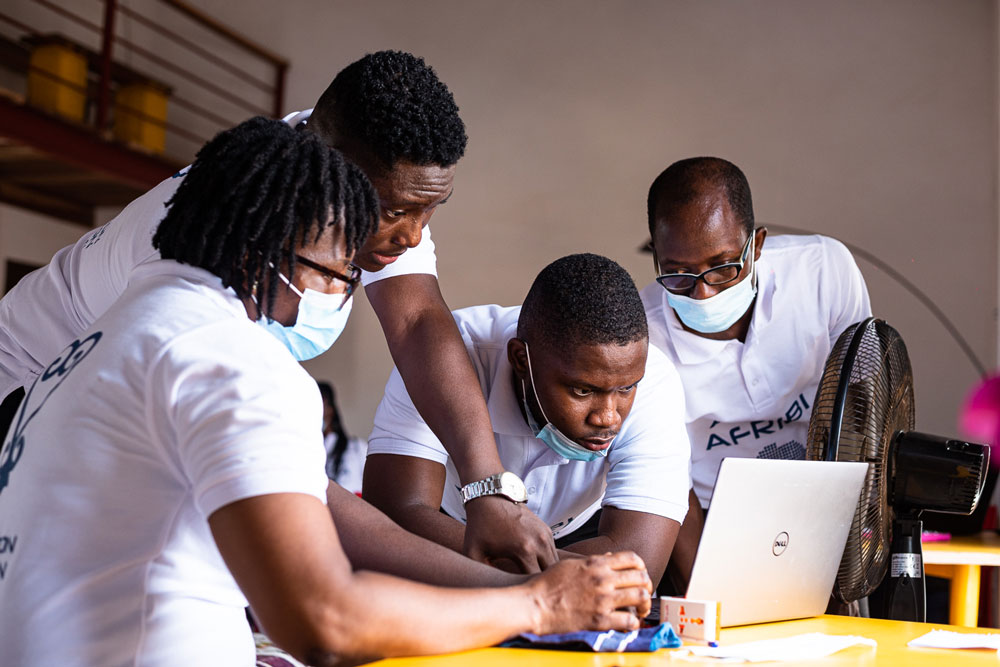With nearly 60 % of its population under 25, Africa has the youngest population in the world. The youth of the continent can without a doubt be its most valuable economic asset, especially if its human capital is well-positioned to take advantage of the emerging opportunities to accelerate economic growth and development.
However, the bulk of the continent’s youth presently either remain unemployed or work in low-wage, low-productivity jobs in the informal sector to make ends meet. This is because only 3 million of Africa’s 12 million young people who enter the labor field each year successfully secure job positions created by their respective governments.
Although many African countries continue to face unemployment challenges, in recent times, however, increased digitalization and the advent of the COVID-19 pandemic which saw a massive shift toward remote work have created enormous avenues for the youth to forge paths towards sustainability for themselves and their families through tech and innovation. For instance, over the last five years, the number of African tech startups receiving financial backing has grown by 46 % annually, six times faster than the global average. More so, while research conducted during the early stages of the epidemic predicted that half of South Africans will work from home full-time by June 2021, presently, 42 % of Africans are now reported to work remotely at least once a week. What’s more, a Deel report revealed that companies hiring Africans for remote tech job roles increased by 800 %, a growth rate more than double the hiring rate for countries outside the continent.
Dealing with the unique challenges of remote work
The idea of working from home is not new. It has grown steadily over the past decade and Africa like the rest of the world has had its fair share. Therefore, it is not surprising that the number of people working remotely in Africa is rapidly increasing, with Egypt, Kenya, Nigeria, and South Africa leading the way. Although remote work presents an exciting way to work in the modern world by allowing employees to work from any location, it is also obvious that it presents some complexities for Africans. In addition to major concerns including power outages, internet access issues, and distractions due to limited space, young African remote workers have had to deal with challenges relating to communication gaps, managing engagement, and motivation in a remote work setting, maintaining work-life balance and as well as staying ahead of the curve in terms of technology and innovation.
How Azubi Africa and the DSAA are assisting young Africans to manage remote work obstacles
To succeed in the world of remote work, there is the need for individuals to have a rethink on how to apply standard workplace procedures/processes without the benefit of face-to-face or in-person communication. As such, adopting an agile mindset would provide the ideal strategy that would enable them to concentrate on effective collaboration, self-organization, and maintenance of cross-functionality. This is why the Digital Skills Accelerator Africa’s e.V. (DSAA) initiative of creating job opportunities for individuals through partnerships with digital skills training institutions such as the AZUBI AFRICA academy, not only focuses on the need to put people at the center of the digital future by equipping them with digital skills in cloud technology, data, business analytics, and software engineering but is also very keen on providing trainees with soft skills such as effective communication and collaboration, management, analytical thinking, and problem-solving skills.
Through collaborative efforts with both local and international technology service providers, digital skills training providers, and businesses, the DSAA has made available adequate financial resources, material, and skilled personnel to its digital training partners across Africa. These provisions have enabled Azubi Africa to offer extracurricular activities to its trainees. These activities include offering premium career services such as one-on-one career coaching and mentorship service, organizing webinars, workshops, and seminars on effective work-life balance strategies, management skills, effective communication, growth mindset, and self-organization skills, among others. All of which are geared toward preparing trainees for the remote work job market.
In addition to the above, the DSAA has also enhanced its efforts to help young Africans stay ahead of the digital curve. By this, Azubi Africa continues to receive tremendous support in expanding its digital skills training programs to include nationals from Kenya, Rwanda, and Senegal. DSAA believes that through this initiative, young Africans will receive the relevant skill sets they need to succeed in the ever-changing workplace of the future.


